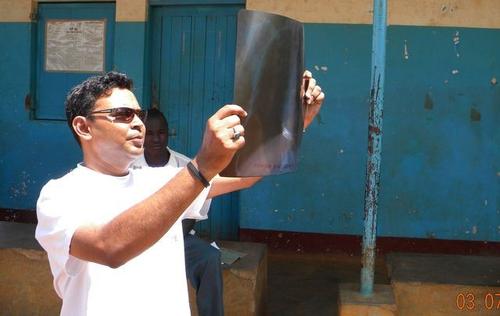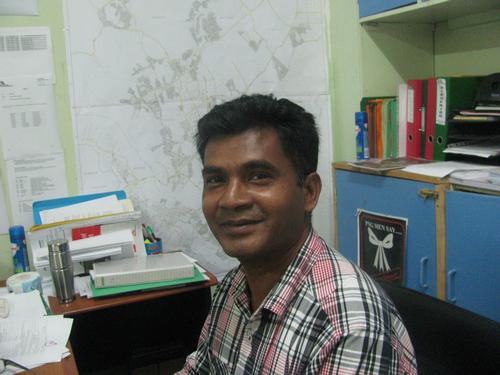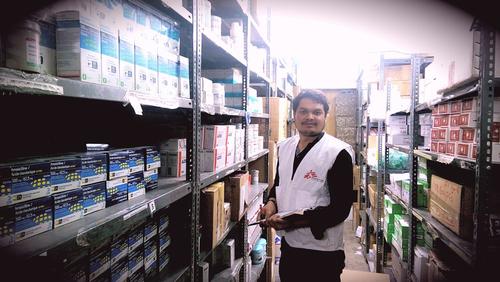Arif Uddin Kazi was born near the Sundarbans, a mangrove forest in Bangladesh, almost the size of the small African country where he currently works. In Swaziland, every year this medical doctor treats hundreds of HIV/AIDS and tuberculosis patients in a clinic run by the medical humanitarian organization Médecins Sans Frontières (MSF).
At eight o’clock in the morning, more than one hundred patients are already waiting for their turn. The clinic in Matsapha, one of the biggest towns in Swaziland, is ready for another busy day. There is no time to waste, says doctor Arif Uddin Kazi. “Many people come from very far away, up to 100 kilometers. They trust our services and there is no such facility near their homes”.
Kazi was born 48 years ago in Bagerhat, close to the Sundarbans in the south of Bangladesh. This huge and beautiful mangrove forest is almost the size of Swaziland, the country where Kazi has been working for Médecins Sans Frontières (MSF) since 2012.
“Every day we see around 300 patients. They come to Matsapha for all kind of illnesses such as diarrhea, hypertension or minor surgeries”. However, the focus is on those patients that have HIV/AIDS or tuberculosis (TB). Some patients have both diseases at the same time.
Good health infrastructure, limited capacity for chronic diseases
“In Swaziland the health infrastructure is not bad when compared to other African countries but there is limited capacity to deal with chronic diseases”.
In a year, MSF treats around 3500 HIV patients with ARV, 200 people with multi-drug resistant tuberculosis and 1000 affected by sensitive TB. “There is a huge number of patients. Something needs to be done to reduce the workload. Many of the people who approach the clinic had not been booked and some of them cannot be seen the day they come”, says the doctor.
After consultations with patients, Kazi gets busy with data collection and analysis, prepares clinical trainings and presentations and plans several other activities. It is non-stop in Matsapha, one of the main industrial areas in the country which hosts garment and construction enterprises as well as engineering firms.
“Swaziland is doing well financially and people are nice. There are no security issues and it is possible to do many things. There are a number of beautiful parks and nature enclaves to visit during weekends. The countryside is great”, says Kazi.
A decade in Africa
His romance with Africa started almost a decade ago, with a small parenthesis in Uzbekistan. Kazi, who specialized in tropical diseases, has previously worked for MSF in Malawi and Uganda, and before that, he used to be employed by the Ministry of Health in Nigeria.
“I usually go back to Bangladesh once a year. I miss my parents and friends. I also miss fish, which is not easily available here, especially a good fish curry”. In Matsapha, Kazi lives with his wife and his 14-year-old son. “What I miss from Dhaka are the rickshaws”, he says with a smile. With about one million inhabitants in total, Swaziland has 15 times less population than the Bangladeshi capital city. Kazi lived there for ten years before beginning his journey through Africa.
This doctor from Bagerhat is proud about the work done in Matsapha. “I think we are playing a major role to save lives and to increase the quality of life of the HIV and TB patients”







